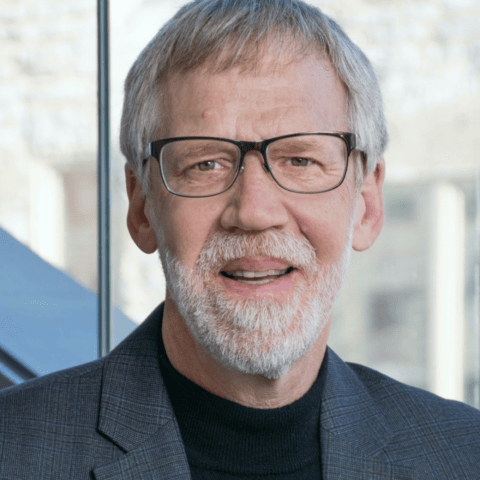Describe your background and industry experience, and explain how it will help you contribute to the SOCAN Board of Directors?
I am a concert music composer and Queen’s University music professor living in Kingston, ON, since 1987. “Katarokwi,” is the traditional Indigenous name for the Kingston region and, being fully aware of my privileged white settler background, I am grateful to live and work on the ancestral territory of the Anishinaabe and Haudenosaunee Nations. My numerous university administrative positions include being Director of the School of Music from 2006-2009.
A twice Juno-nominated composer, my work, FLANDERS FIELDS REFLECTIONS, for string orchestra, as recorded by Sinfonia Toronto, received the 2009 Juno Award for the Best Recording of a Canadian Classical Composition. In addition to over two dozen works for orchestra, I have composed a large body of solo instrumental, chamber, vocal and choral music. In 2014, I was inducted as a Fellow into the Royal Society of Canada in recognition of my successful career as a composer and for my contribution to arts leadership in Canada.
I have served on numerous local boards, including being a founding board member of Cantabile Choirs of Kingston (1995) and Board Chair of the Music at Port Milford Summer Music School during a period of significant renewal from 2012-2017. On a national level, I have served on the executive of the Canadian League of Composers (CLC) from 1993-2007, holding the position of President from 1998-2006. While on the CLC board, I worked directly with SOCAN and the SOCAN Foundation and these efforts were acknowledged with an invitation to join the SOCAN Foundation Board of Directors in 2009, a position that has been subsequently renewed every three years. As SOCAN Foundation Treasurer/Secretary since 2017, I count myself fortunate to have had the opportunity to work with a dedicated team in the promotion of Canadian music.
At their best, universities are collegial organizations run with a spirit of cooperation that continually looks for mutual points of agreement and new solutions to old problems. After 37 years of university administration and teaching, I feel well-prepared for the demands of SOCAN board work. Over the years I have developed the ability to effectively formulate and express my ideas and perspectives clearly and am often called upon to craft motions that capture an outcome that either solves an immediate problem or points the way forward to finding a solution. I have decades of experience working with budgets and financial planning. My past involvement with the Canadian League of Composers has guided my national perspective, instilling in me the value and importance of these kinds of service organizations for Canadian music creation and publishing, especially with regards to lobbying government policy. During the past fifteen years that I have served on the board of the SOCAN Foundation, it has been remarkable to observe how the introduction of new programs to support equality and diversity has generated corporate support for these initiatives and promoted some extraordinary talents. I am fully committed to creating opportunities for all creators and publishers in Canada.
In your opinion, what issues will be most important to SOCAN members over the next three years?
One of the most important issues facing all performing rights organizations is the protection and modernization of copyright legislation to meet the demands of the constantly evolving technological and digital landscape. In an increasingly complex digital world, reliable and searchable data lists accessed through traceable registration systems will become even more crucial than ever before.
More and more, producers and production companies are pressuring music creators to give up a portion, or all, of their copyright to simply have their music performed or used for commercial purposes. Defending the rights of authors, creators, and publishers is essential to the future well-being of SOCAN and its members. SOCAN must continue to lobby government for copyright law changes so that members can receive a larger share of revenues from established streaming services and those that are user-generated. By extension, SOCAN needs to continue to work strongly in the areas of public policy to make sure that Canadians understand that upholding copyright protection is truly a matter of maintaining, developing and promoting Canada’s diverse cultural identity. Addressing these matters as a priority, will help SOCAN to attract, engage and support an increasingly broader range of emerging creators.

